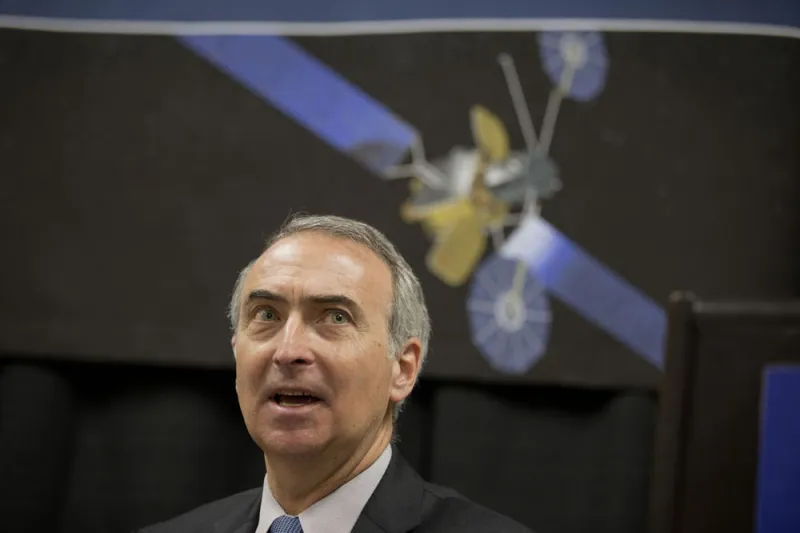Spectrum player Intelsat was a hedge fund hotel this year, which is bad news for several of those who took big stakes — particularly Robert Citrone’s Discovery Capital.
Intelsat shares have fallen almost 70 percent this year, with most of the decline happening in November, after the Federal Communications Commission came out with a surprise announcement that it would publicly auction a top asset, called C-band spectrum, for 5G telecommunications development.
Satellite operators that own the C-band spectrum, including Intelsat, were hoping to sell spectrum frequencies to Verizon, AT&T, and T-Mobile/Sprint for billions, but the public auction proceeds will instead go to the government. Until the announcement, satellite operators had faced little vocal opposition to their plan for a private sale — except from a Trump loyalist, Sen. John Kennedy, a Republican from Louisiana whom investors believe influenced the abrupt change of heart by the administration.
Sen. Kennedy has acknowledged contacting Trump about the issue, according to Bloomberg. On October 30, Trump called the FCC Chairman to discuss the matter but, according to a report in Bloomberg quoting an anonymous FCC official, did not “direct the agency on what to do.”
Hedge funds with positions in Intelsat at the end of the third quarter included not only Discovery — which had an outsize position — but Pentwater Capital Management, PointState Capital, Kerrisdale Capital, Canyon Partners, Fir Tree Partners, Stonehill Capital Management, Balyasny Asset Management, and several others, according to public filings.
The regulatory shift is particularly bad news for Discovery, which was the third-biggest shareholder of Intelsat at the end of September, according to the 13F the hedge fund filed at that time, when Discovery’s Intelsat position was worth $146 million.
Intelsat was the top equity holding of Discovery, making up 24.2 percent of its public stock portfolio at quarter’s end, more than double what it was at the end of the previous period. The hedge fund had been adding to its Intelsat position while the stock rose on expectations that the FCC would authorize a private sale.
If the fund had not sold or bought any shares, it would have lost about $100 million in the downdraft. Discovery declined to comment.
Pentwater Capital emerged as the ninth-largest shareholder of Intelsat at quarter’s end, almost doubling its stake to 3.4 million shares worth $77 million. Still, it only accounted for a little more than 1 percent of its stock portfolio. Pentwater did not respond to a request for comment by deadline.
Meanwhile, Sahm Adrangi’s Kerrisdale Advisors had been selling down its Intelsat stake, but it was still his second-biggest long at the end of the quarter, filings show. Kerrisale dumped more than half of its stake during the quarter, but Intelsat still accounted for 13.68 percent of its equity long book at the end of September.
Adrangi said the fund was still selling shares in October, when it was hitting year-to-date highs. By November Intelsat made up just two to three percent of the firm’s overall assets, according to Adrangi. And through November, according to an individual familiar with the performance, Kerrisdale Partners was up 21 percent.
Kerrisdale, which is well-known for its short bets against spectrum players, surprised the market by going long on Intelsat in 2018 and releasing a report on its prospects. At the time, Kerrisdale suggested Intelsat could end up with a stock market value of $151 per share. It is now trading under $7.
Still, last year Intelsat shares skyrocketed on the spectrum hopes, helping give Kerrisdale a 35 percent gain for the year.
[II Deep Dive: Kerrisdale Capital Continues Its Winning Streak]
Earlier this year, as Intelsat shares were flagging, Adrangi reiterated his view that the FCC would allow Intelsat, and others, to sell spectrum frequencies to Verizon, AT&T, and T-Mobile/Sprint that would be worth tens of billions of dollars.
Another big Intelsat loser appears to be PointState, the hedge fund run by proteges of Stanley Druckenmiller who worked at his Duquesne Capital Management before it was shuttered. PointState had decreased its stake by 37 percent during the quarter but still owned 2.5 million shares going into October, according to public filings.
The Wall Street Journal reported last week that the fund had $1 billion in redemptions as of the end of the September, given that it was facing its second losing year in a row.
The Journal also reported that shorts on Intelsat bonds helped cushion the blow at PointState. The fund, through a spokesman, declined to comment.
Intelsat bondholders — believed to include hedge funds — have also been crushed. Intelsat had almost $15 billion in debt, most of it in bonds. Several of the stockholders, like Fir Tree, Canyon, and Stonehill, are known primarily as credit funds, although it is not known if they also owned the bonds.
Fir Tree and Canyon declined to comment. Stonehill could not be reached for comment.
While Intelsat investors were hurting, another group was making out bigtime. Intelsat emerged as the most profitable short in the market in November, according to S3Partners.
The shorts were up 137 percent in November, with a profit of more than $300 million.







